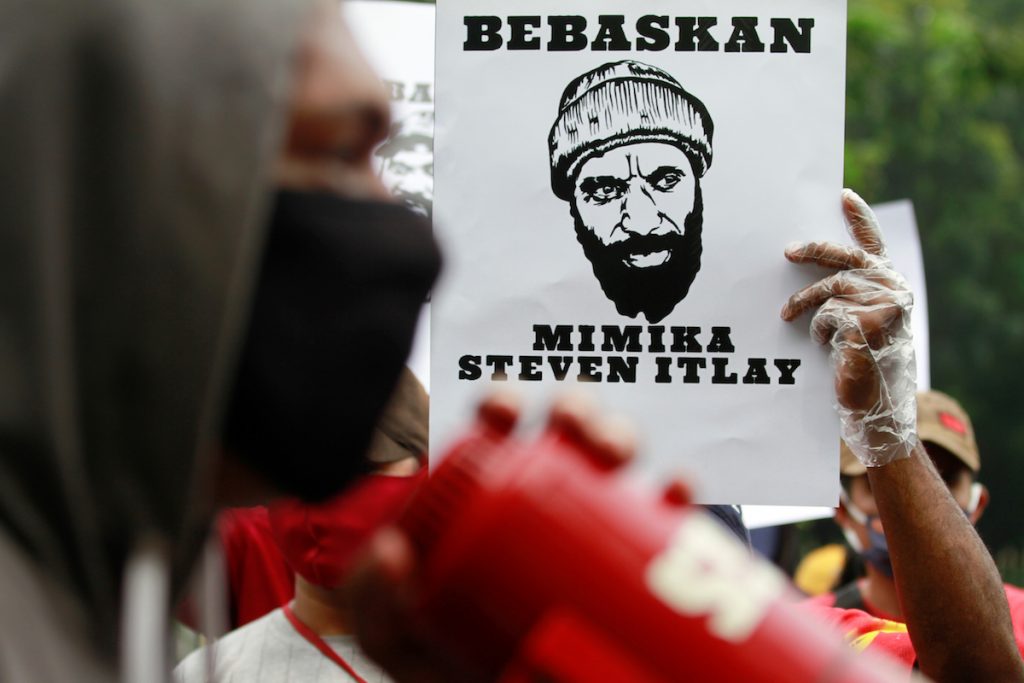An Indonesian court found three Papuan men guilty of treason on June 17 in a high-profile trial closely watched as an indicator of political freedoms in the world’s third-largest democracy.
The Balikpapan district court sentenced Papuan activist Buchtar Tabuni, a senior figure in the United Liberation Movement for West Papua (ULMWP), to 11 months in prison. Prosecutors had called for Tabuni to be jailed for 17 years.
Two university students, Fery Kombo and Irwanus Uropmabin, were sentenced to 10 months each. Judges said Uropmabin had been found guilty of treason for making pro-referendum flyers during anti-racism demonstrations that swept across Papua last year.
The three Papuans are part of the “Balikpapan Seven” group of West Papuan activists and university students arrested by police for involvement in anti-racism riots that erupted in Indonesia’s easternmost provinces last August.
The demonstrations were sparked by racist attacks on several Papuan students in Java, where they were allegedly called “monkeys”.
The verdict for the other four defendants, who are facing between 5 and 15 years in prison, is expected later June 17.
Human Rights Watch said the sentences handed down were significantly lower than what prosecutors had sought, but that the Papuans should not stay “even a single night behind bars”.
“They were protesting against racism but are convicted of treason,” Andreas Harsono, Indonesia researcher at Human Rights Watch, told Reuters.
“The offense here is not the Papuans’ actions, but Jakarta’s willingness to prosecute peaceful dissent and tarnish Indonesia’s international reputation.”
The seven Papuans were arrested in the provincial capital of Jayapura last year and moved to Balikpapan on Indonesian Borneo for security reasons.
The resource-rich and remote provinces of Papua and West Papua came under Indonesian rule in a controversial 1969 referendum sanctioned by the United Nations.

A low-level insurgency for independence has ensued since and the topic remains deeply sensitive to Indonesia’s government.
Flying the Morning Star flag, a symbol of Papuan independence, is banned in Indonesia. Independence figure Filep Karma was convicted of treason after raising the flag publicly and spent 11 years in jail before his release in 2015.
The Balikpapan trial has drawn unusual levels of support in Indonesia, where it has coincided with the Black Lives Matter movement in the United States.
That has inspired a local adaptation — Papuan Lives Matter — which Indonesians have used on social media and in street demonstrations calling for the Papuans’ release.
The global movement has also sparked online forums about perceived racism and discrimination in Indonesia, events that activists say have been subject to obstruction and intimidation.






